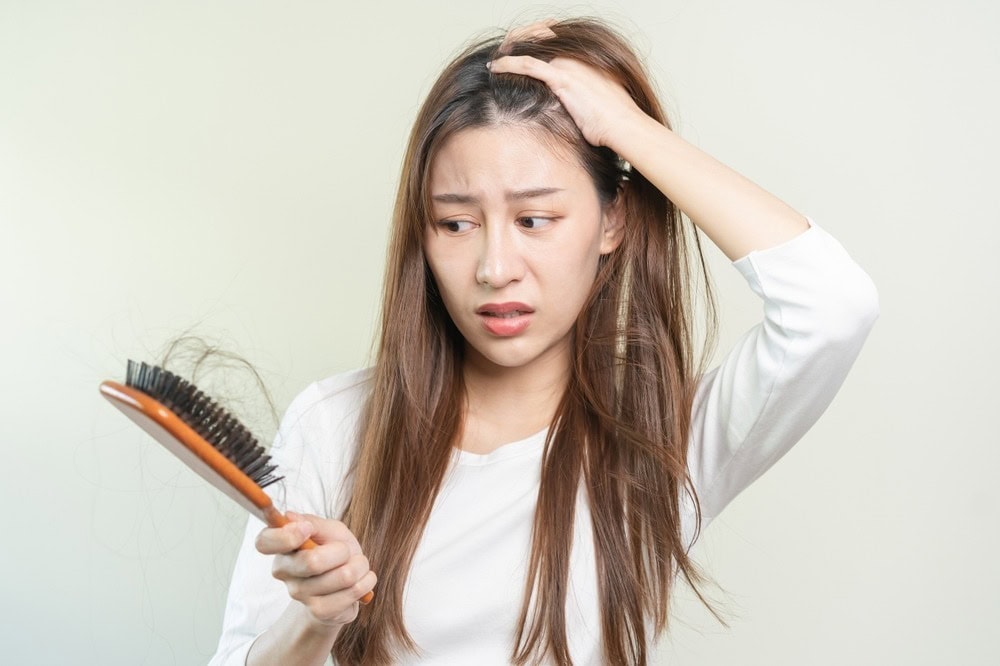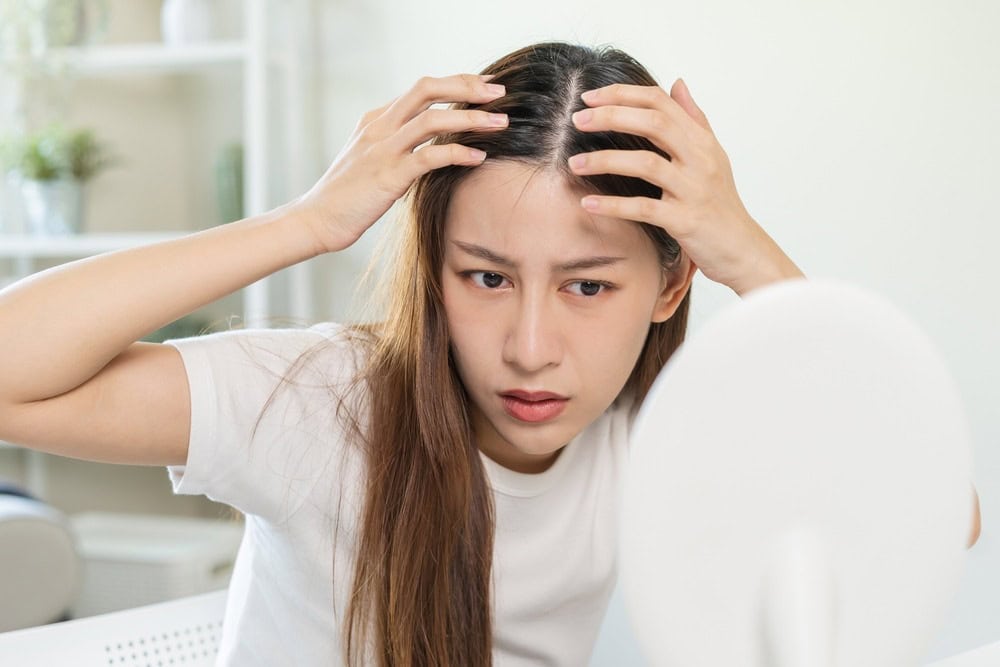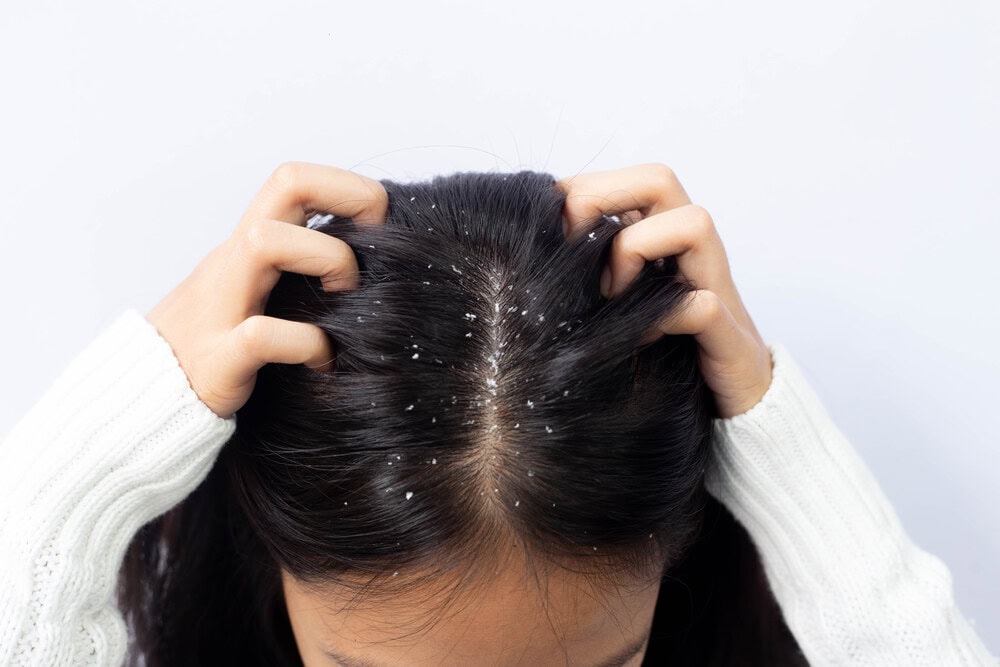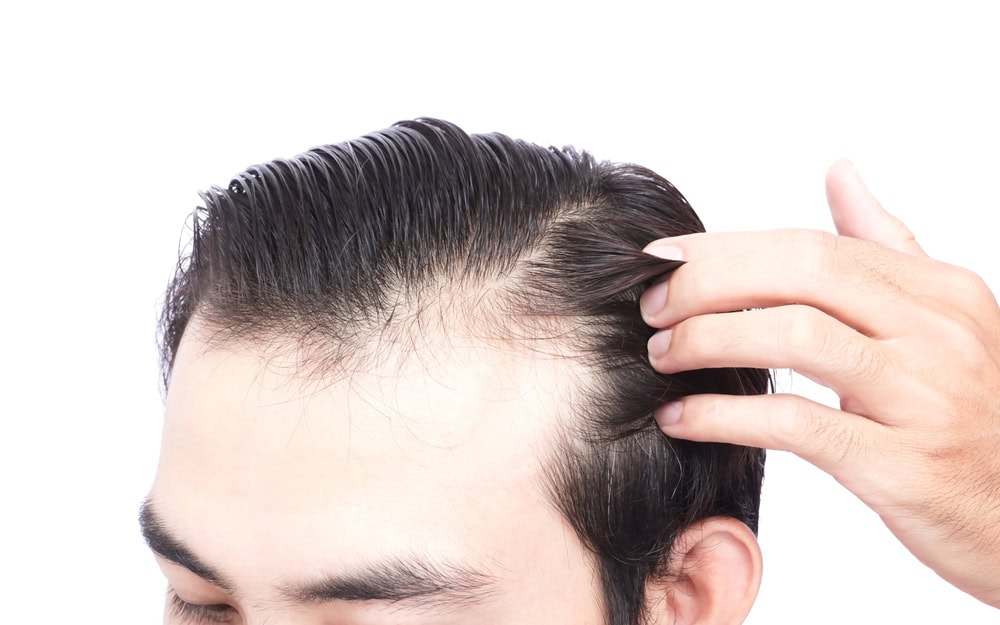Hair that used to normally fall out one or two strands at a time now falls off in clumps when combing the head, and before you know it, the problem of “hair loss” has become a concerning problem that ruins your confidence during your everyday life. Therefore, to deal with this problem, you must first know the root cause, and we believe that many people have heard the phrase “stress is a cause of hair loss”. The question is, is this really the case? This article will find the answer. Let’s find out.
Is stress related to hair loss?
Stress can really affect hair loss! Stress is biologically tied to our hair roots. As hair is very sensitive to emotions and hormones, accumulated stress makes hair weak and falls out. If stress accumulates for a long time, the hair roots can be damaged, causing hair to fall out regularly, leading to baldness.
How does stress hair loss occur?
When we are stressed, the body produces the hormone cortisol which makes the hair weak and has a shorter life cycle than normal. This results in hair being brittle and more prone to breakage, eventually leading to hair loss.
In addition, stress also has other side effects on our body and mind, such as insomnia, which causes insufficient rest, resulting in a lowered immune system, a weak body, brittle hair, and subsequent hair loss.
Warning signs of stress-related hair loss
- Significant hair loss means losing more than 100 strands per day.
- The hair gets thinner and more brittle.
- The hair thins out and more of the scalp becomes visible.
- Hair falling on pillows, clothes, or bathroom floors.
Types of stress-related hair loss
“Stress” is one of the causes of hair loss. It can be divided into 3 types of hair breakage and hair loss from stress as follows:
1. Telogen Effluvium (TE)
Acute hair loss occurs with accumulated stress, causing the body’s hormone levels to change, affecting the life cycle of the hair roots, causing hair to enter a resting phase earlier than normal, stop producing new hair, and cause more hair loss than normal to the point it is clearly noticeable.
2. Trichotillomania
Stress-induced Hair-damaging behaviors such as curling your hair with your fingers, picking at your scalp, scratching your scalp, or pulling your hair without realizing it or ability to control it, can cause hair loss and visible hair thinning.
3. Alopecia Areata (AA)
Hair loss and hair loss caused by stress in the body, causing the immune system to malfunction. At this stage, the body understands the hair roots as foreign objects, it creates a process to attack the hair roots, causing a lot of hair loss. If left untreated, the symptoms might grow worse and lead to baldness.
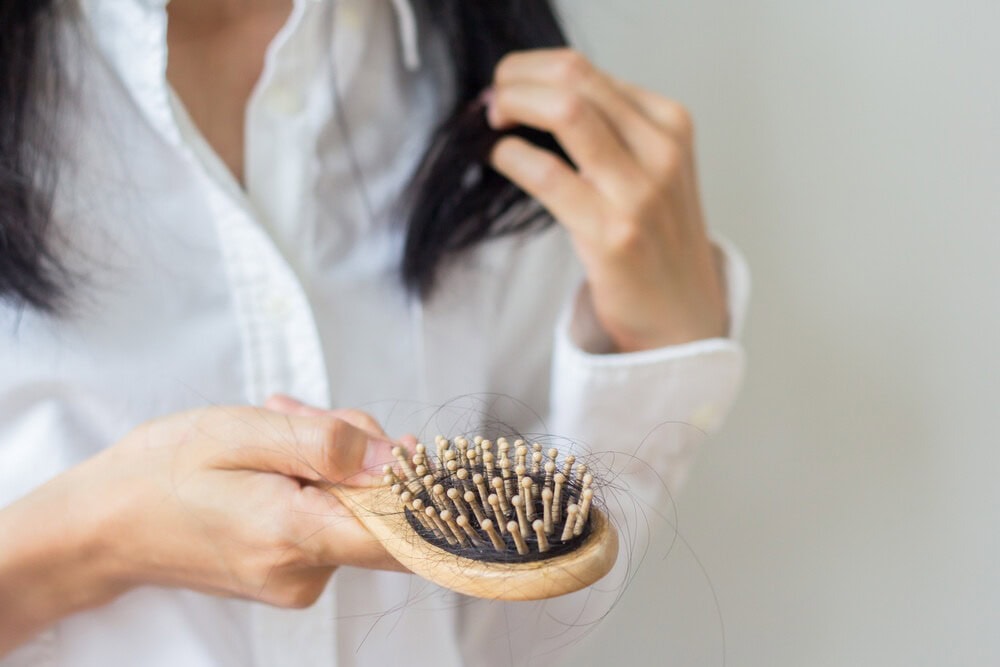
The more stressed you are, the more hair you lose. The more hair you lose, the more stressed you are. How can you solve this problem?
Stress problems not only cause hair to break easily, leading to hair loss, but if left untreated, it can affect your looks and image, destroying your self-confidence. Therefore, if you are experiencing stress-induced hair loss from stress, you can try the following methods.
- Stress management
Get an appropriate stress relief method, such as
Meditation and breathing exercises to control your emotions and alleviate stress.
Exercise, sports, and yoga not only help strengthen the body, but also improve your mental health.
Sufficient rest, sleeping at least 6-8 hours a day will reduce stress levels. - Caring for your hair from the inside
Nourish your hair from the inside by taking beneficial vitamins that are necessary for your hair, such as:
Biotin: Helps prevent hair loss and breakage
Protein: Eat sufficient protein to meet your body’s needs, which is 0.8 – 1.2 g/kg per day
Vitamin B complex: Helps strengthen hair
Iron: Helps nourish the blood, allowing it to transport more nutrients to the scalp and hair.
Zinc: Helps stimulate keratin production, making hair strong and healthy - Consult the doctor
If you already take care of yourself but your hair loss and thinning problem does not go away, or getting worse, you can consult a hair and scalp specialist to help solve the problem. This will also assess your symptoms on an individual basis to find the right, appropriate, and safe treatment.
If you notice that your hair loss is getting worse, don’t ignore it. You can consult a specialist at Max Hair Clinic, a full-service hair clinic that provides care and treatment to solve hair loss and thinning hair problems by experienced doctors who specialize in world-class techniques. It has been trusted by many patients, including celebrities.
You can receive a free consultation at all Max Hair Clinic branches nationwide or contact via Line Official @maxhair, or call 083-289-1664.

